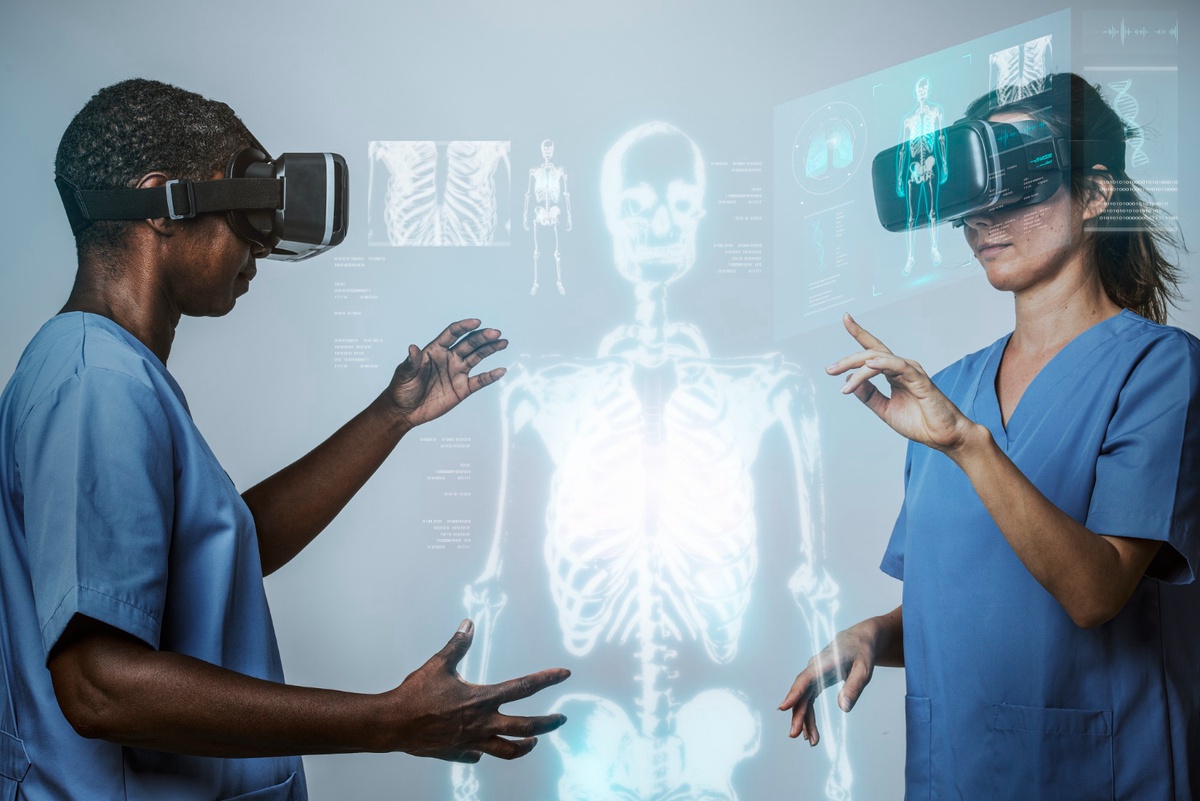In recent years, the intersection of artificial intelligence (AI) and healthcare has ushered in a new era of innovation and transformation. As we stand on the cusp of technological breakthroughs, it's essential to delve into the current trends shaping the landscape of AI development in healthcare.
1. Predictive Analytics for Disease Prevention
One of the most impactful trends in AI development services for healthcare is the integration of predictive analytics. Machine learning algorithms can analyze vast datasets to identify patterns and predict potential health risks. This proactive approach enables healthcare professionals to intervene early, preventing the onset of diseases and improving patient outcomes.
Predictive analytics in healthcare doesn't just stop at risk assessment. It extends to forecasting patient admission rates, optimizing resource allocation, and enhancing overall healthcare management. This trend not only saves lives but also contributes to the efficiency of healthcare systems.
2. Precision Medicine and Personalized Treatment Plans
AI is revolutionizing the way we approach medical treatments through precision medicine. By analyzing an individual's genetic makeup, lifestyle factors, and environmental influences, AI can tailor treatment plans to suit the unique needs of each patient. This personalized approach not only enhances treatment effectiveness but also minimizes adverse effects.
The advent of AI-driven diagnostics further refines precision medicine. AI algorithms can quickly and accurately analyze medical images, pathology slides, and genetic data, aiding clinicians in making more informed decisions about treatment options.
3. Virtual Health Assistants Enhancing Patient Engagement
The rise of virtual health assistants powered by AI is reshaping patient engagement and healthcare delivery. These AI-driven assistants offer personalized health advice, medication reminders, and continuous monitoring of vital signs. They provide patients with a virtual companion that ensures adherence to treatment plans and encourages healthy lifestyle choices.
Moreover, virtual health assistants contribute to reducing the burden on healthcare professionals by handling routine inquiries, appointment scheduling, and follow-ups. This not only streamlines administrative tasks but also allows healthcare providers to focus more on patient care.
4. Automating Repetitive Tasks for Healthcare Professionals
AI development services are increasingly being employed to automate mundane and repetitive tasks in the healthcare sector. From administrative duties like paperwork and appointment scheduling to data entry and analysis, AI systems can handle these tasks efficiently. This automation not only enhances the accuracy of data but also frees up valuable time for healthcare professionals to concentrate on complex and critical aspects of patient care.
By leveraging robotic process automation (RPA) and natural language processing (NLP), AI can assist in extracting valuable insights from medical records, research papers, and clinical notes, aiding healthcare professionals in making more informed decisions.
5. Enhancing Cybersecurity to Safeguard Patient Data
As healthcare systems become more digitized, the need for robust cybersecurity measures is paramount. AI is playing a crucial role in fortifying the security of patient data and healthcare networks. AI algorithms can detect and respond to potential security threats in real time, mitigating the risks of data breaches and unauthorized access to sensitive medical information.
Additionally, AI-driven solutions contribute to the development of secure communication channels within the healthcare ecosystem, ensuring that patient data remains confidential and protected.
In conclusion, the current trends in AI development services are reshaping the healthcare landscape, offering unprecedented opportunities to improve patient outcomes, streamline processes, and enhance overall efficiency. As we witness these transformative changes, it's evident that the collaboration between AI and healthcare is here to stay.
In this era of innovation, companies like Blocktunix are at the forefront, contributing cutting-edge solutions to propel the healthcare industry forward. As we look ahead, the integration of AI will continue to revolutionize healthcare practices, providing a brighter and more efficient future for patients and healthcare professionals alike.


No comments yet